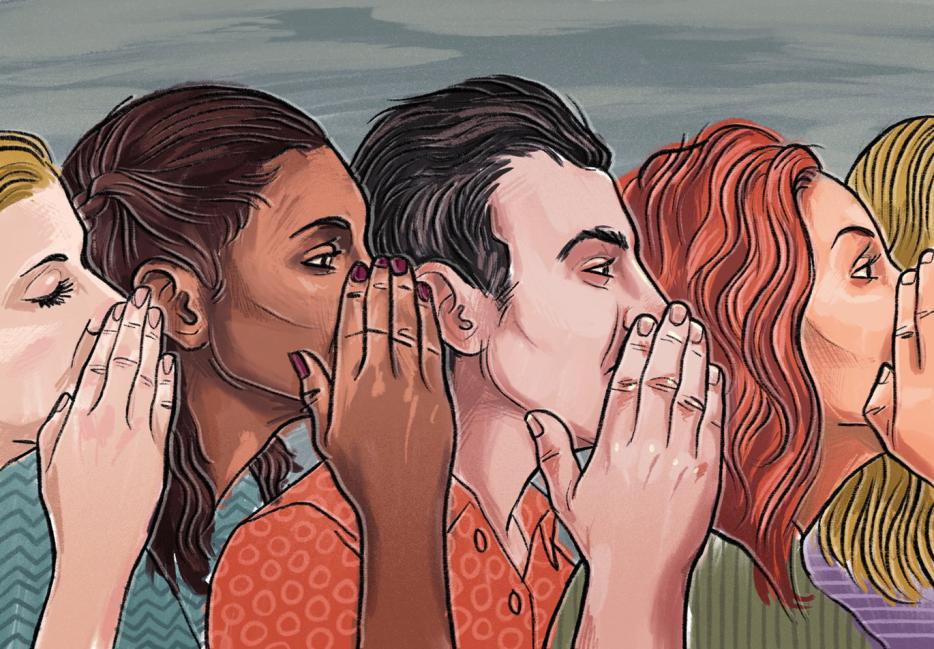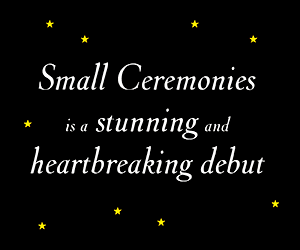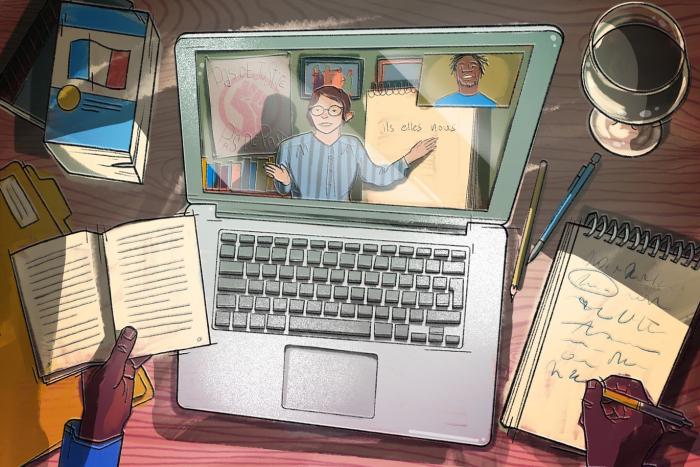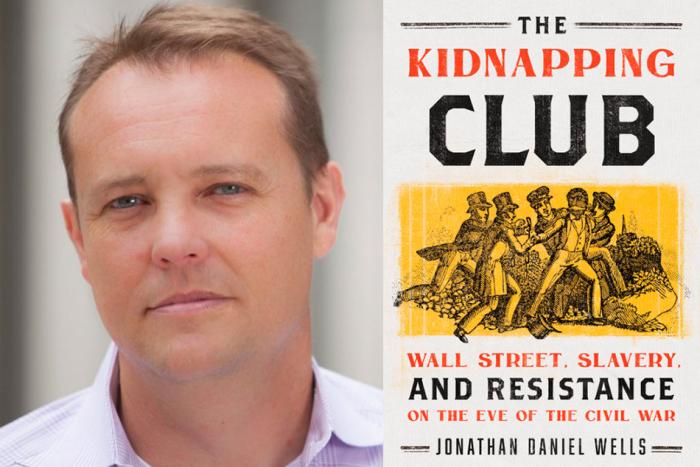What were we obsessed with, invested in, and beset by in 2020? Hazlitt’s writers reflect on the issues, big and small. Keep up with this year's series here.
For most of the pandemic, a friend of mine, Felix, has been keeping me updated with installments of a gossipy saga which has been unfolding in his hometown. He is a few years younger than I am (in his early 20s) and he usually lives in a warehouse with a lot of other people, so when lockdown was first announced in the UK, where we live, he thought it made sense to move back in with his parents. A lot of the people he grew up with had similar ideas, and so they all ended up back in a kind of simulated second adolescence, in which everyone’s social currency had shifted thanks to impressive or disappointing career achievements, and worse or better haircuts or exercise regimes.
There was a long summer of drinking and doing drugs outside, and drinking in people’s houses when that was allowed. Sometimes also when it wasn’t. One night, a pair of brothers, let’s call them Frank and Stephen, spent the day with another friend of theirs, let’s call her Beth. Frank is the older brother, less handsome and shorter, but more charming, and he has long held a candle for Beth, as Stephen well knew. That night, he thought, could be his lucky night.
As the day wore on Frank got drunker and drunker, as people often will when they want to do something but don’t want to fully own the responsibility for doing it. In his excitement he didn’t pace himself and soon he was so drunk he was slurring his words, telling the first few sentences of the same story over and over again, his face contorted into an ugly leer. Stephen, charitably (you think at first), offered to take him back to their parents’ house and put him to bed. But, once he had done this, Stephen promptly cycled back to Beth’s house, phoned her and said: “Hello, look outside.” And you can guess what happened next.
This would, I think, be fine in and of itself. Maybe an underhanded thing to do, but not totally egregious, except Stephen didn’t tell Frank what had happened, and then the very next week, after another day of drinking in the sun, Frank finally did sleep with Beth. Very pleased with himself, and not knowing that his brother had done the same thing the week before, he sat with a group of friends a few days after, boasting that he and Beth were on the road to what he called a “lockdown thing.” One of these friends asked Frank if he knew about Stephen, thereby telling him about Stephen, and Frank was livid.
I think it was the embarrassment that really fueled his anger, and having to then engage in the absolutely mortifying rigmarole of pretending he didn’t earnestly mean what he had just been saying about this “lockdown thing,” when he clearly did. He phoned Beth to tell her he was calling the whole thing off; then he fell out with Stephen, too.
When me and my friend Felix discussed this chapter of the saga with some other friends, we mostly agreed that Frank was the wronged party, but we thought he had probably overreacted to the revelation about his brother out of shock and humiliation (as people often do), and that Stephen had conducted himself in a slippery manner. I thought the responsibility to tell Frank what had happened probably ultimately lay with Beth, but not everyone agreed. We talked about it for a while, but we never came to a consensus. My point was that Stephen couldn’t have known Frank and Beth would end up sleeping together, but Beth certainly did. Others argued that the boys are brothers, which should count for a lot in the honesty stakes.
When we next met and my friend told me the latest installment, it turned out that Frank had now slept with Beth’s best friend, Sarah—a detail which, to me, rendered Frank an altogether more calculating and shrewder character than I had imagined him to be. It also transpired that this had happened the very night after a conversation between Beth and Sarah, in which Beth had told Sarah that she regretted the way things had gone because, really, she quite liked Frank, and now the “lockdown thing” was off the cards. Then a mutual friend of the girls, Stephanie, told Beth about Sarah and Frank, and Beth said something rude about Sarah in response, and Stephanie went right back and told Sarah the thing that Beth had said.
Here, my friend thinks Sarah has behaved badly, but I’m not entirely sure. Maybe I wouldn’t do the same thing, but I don’t think it’s such a terrible thing to do. Their situation seemed to have ended, as I see it. Maybe she was bored. My read is that Frank was being cunning, trying to get revenge for having been embarrassed, and someone else got caught up in it. Ultimately, Stephanie is the worst operator here, in my book (but I can admit that this is just in my book), due to my vehement personal distaste for any behaviour that runs close to “snitching.” Felix agreed with me there, but then he also hates snitching as a concept, so he knows he isn’t viewing it objectively either. Anyway, because of this, the girls “went to war,” as Felix put it.
The latest I’ve heard is that a beloved ex-girlfriend of Stephen arrived back in the middle of all this and Frank got in touch with this person and they ended up sleeping together. Now things have come full circle and Stephen is the injured and angry party. When my friend told me this I said it was clear to me that, by this point, Frank was binging on revenge, absolutely drunk on it. Felix said he wasn’t sure if it was all about revenge; I said of course it was! We talked about it for a while but never totally saw eye to eye. It’s a messy situation, and even though we’re good friends, and pretty similar in our outlook, we still ultimately have different codes of behaviour. We could probably talk about it for years and never agree.
The entire group of home friends became fiercely invested in this story to the point that rival factions had a shouting match over the matter. You can probably tell this already, but I became very invested in it, too. It has been a welcome distraction.
*
This was the year when everything happened and nothing happened and I quickly got bored of talking about the news (almost always bad) or asking people what they had been up to (almost always nothing). So I got into the habit of asking friends for whatever gossip they had from their circles. I didn’t have to know the people involved; these stories aren’t interesting because of my personal connection to them, and the point of these conversations isn’t condemnation or judgement. Instead, it is about identifying with particular characters, thinking about how you would handle certain situations, and being reminded of all the strange and terrible things we all get up to all the time.
Over the course of the year I have discussed many stories like Frank and Stephen’s, although theirs has more layers than most, and more of a soap-opera quality. One friend told me about someone they know who has ended up living in a house-share with his best friend’s ex-girlfriend. During lockdown they ended up developing a flirty relationship and kissed a few times. They decided he should speak to his best friend and check if it would be okay if they started a relationship. Then, after he went and had that hugely uncomfortable conversation, she decided actually she wasn’t sure about the whole thing. Now he doesn’t know if she ever meant it, and since then they have lived together for months without speaking a word to each other.
Another friend knows a woman who has found herself getting lots of messages from someone she almost had a relationship with years ago. (I asked if that meant someone she had slept with but never gone on a date with and was told basically, yes.) She ignored the messages at first because this person is from a time in her life she doesn’t like to think about, but then when she looked at his Facebook she discovered he got engaged very recently and had no idea what to make of the whole thing—although she then found herself compelled to reply (out of “curiosity,” she said), and they have now started speaking regularly.
(Actually, lots of people have told me characters from their past resurfaced this year, and often to say sorry for something cruel they had done a long time ago—sometimes so long ago that the person on the receiving end of it had forgotten all about it, but the person living with the guilt of doing the cruel thing never had.)
Someone else told me about a situation involving rent. Someone they knew moved into a new flat with a friend, and was told rent for the room cost a certain amount, which was the amount the previous tenant had paid, but has since found out that the friend they moved in with has been paying a lower amount for their room. They feel they’ve been cheated (the word “swindled” was used), but I’m not sure I agree with that one. It’s a different room and the amounts were fixed in advance, as I see it. Still, they’ve fallen out over it.
Another person has fashioned themselves the protagonist of a detective story. Their tailor took a batch of clothes to alter at the start of lockdown and returned them with a shirt missing. The tailor kept saying she hadn’t lost it and would bring it back, but then would ignore texts and phone calls. Eventually, she said her husband had died and she had too much going on to deal with this shirt business. But, my fake detective friend thought it seemed fishy, and the not-knowing drove her up the walls, so eventually she actually paid money to obtain the recent death records for the area and discovered the tailor’s husband was still alive. She had uncovered a liar!
I heard quite a few stories about people who had broken lock-down and other pandemic associated rules. Most of this seems to have been small-scale, but one friend told me about a very rich family they know who hosted an entire secret wedding in a big house in the countryside somewhere, and then came to quickly regret it when several guests contracted Covid within a week of the event.
There was one friend who said she had no gossip but could she tell me a story about her family anyway? It was something she wanted to talk to someone about, but she wouldn’t call it gossip. She asked if I remember her dad, who had been in a coma for a while. I said of course, and she asked me if it was terrible that she was tired of waiting for him to die and just wanted it to be over already. Their relationship has always been fractured. Back in his day, he was a swaggering lothario character—lots of fun, but a terrible dad. He had many affairs and left her mum as a young woman with two small children in a country where she didn’t know anyone. He and my friend have had patchy contact over the years, and she has made her peace with most of these things, but still she doesn’t want to have any kind of caretaker role for this man. I said I don’t think it’s terrible at all, it’s an unfair position to be in and she’s been in an unfair position for most of her life. She said she feels like you aren’t allowed to say things like that about your parents, and I think she’s probably right. You’re probably not allowed to.
*
I don’t know what the moral of any of these stories is. People are all crazy and they drive each other mad? Everyone is selfish, and everyone lies? Most people see their own perspective miles before anything else? People have a lot of sex when they’re bored? I don’t know who the monsters and victims are, either. More or less everyone, to a greater or lesser extent; it is rare that anybody in real life is ever wholly one or the other.
But I like talking about these things in an environment in which everyone accepts the ambiguity of people and the things they do. This has been a respite from the world of social media discourse, where none of this complexity exists, and instead everywhere you look there are self-appointed priests, castigating sinners. The brand of simplistic and overzealous moralism that exists online has long been tedious, but the pandemic has made it even more so: people are bad because they go to the park and it's busy; selfish for shopping too much; spoiled if they ever complain; the list goes on and on.
Earlier this year, after the first lockdown in the UK ended, there were pictures all over social media of hordes of people at reopened bars in central London. A round of scolding ensued, and I tweeted that I was confused as to why people would want to go to a bar in central London right now, but that I didn’t see the point in the scolding and that I wasn’t sure anyone out at these bars would even see it. Someone promptly commented to tell me off for not scolding. I found it so strange, being told off, not even for something I had done, but for saying that I didn’t see the point in telling others off. But it cemented something I’ve long thought: that so much of this scolding is synthetic, performative and pointless.
I often find it hard to shake the feeling, when things are offered up for judgement on the internet, that I am not getting the whole story; that things have been tailored or reframed or certain things have been left out and other things highlighted; and that the judgement I am being asked to come to is simple while the information I am considering is complex and incomplete.
I even felt like this about the recent story of the man who accidentally masturbated on the work call (or masturbated on purpose while accidentally on a work call is maybe more accurate). I found myself wondering more about why I knew this man had masturbated on the work call. I’m not sure whoever leaked the story occupies a position of moral righteousness in that situation, although maybe they do; I don’t know exactly what happened. Trying to get someone in trouble is not necessarily the same thing as holding them to account, but it definitely can be.
The thing I keep coming back to is that, while I don’t think it was a good thing to do, and I’ve never masturbated at work (as far as I can remember), I have definitely done things I wasn’t supposed to do in a work environment many times. At one job I used to copy all the text out of articles and paste it into fake colour-coded “data collection” spreadsheets so I could read instead of working; I have slept with colleagues when it wasn’t technically against the rules but I probably shouldn’t have; phoned in sick when I wasn’t; got friends to sign me in and out; all kinds of things like that. Once, on a Friday, in a job where I had a horrible angry manager, I said I was going to work on another floor for a change of scenery, and instead left the building to meet an unemployed friend at a gallery and get a drink.
I suppose what I’m saying is I feel uncomfortable positioning myself as any kind of moral arbiter in these situations because I know I live in a glass house. I don’t think I know anyone who doesn’t, although maybe a lot of people who are in denial about the fact that they do. Well, I can’t speak for anyone else, but if you live in one too I can promise you I won’t throw any stones in your direction; I have my own glass house to think of, after all.






